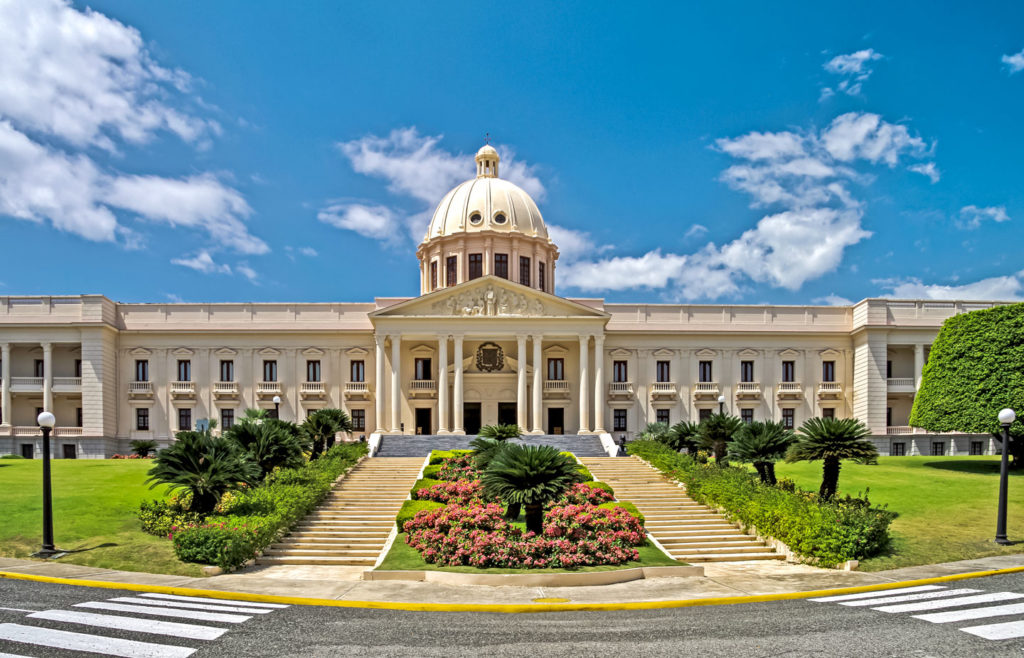Dominican government deporting Haitians
UN official urges Dominican Republic to cease deportations, crack down on racism

UN High Commissioner for Human Rights Volker Türk has called on the Dominican Republic to cease forced deportations of Haitian migrants and people of Haitian ancestry amid a growing human rights crisis in Haiti.
Luis Abinader, President of the Dominican Republic, lashed out at Türk last Thursday, warning that the country would increase the deportations in response to his request.
Türk, in response, doubled down on his demand.
“I am troubled to see that forced returns of Haitians to Haiti from the Dominican Republic are continuing,” he said in a public statement. “Unremitting armed violence and systematic human rights violations in Haiti do not currently allow for the safe, dignified and sustainable return of Haitians to the country. I reiterate my call to all countries in the region, including the Dominican Republic, to halt the deportation of Haitians.”
Türk also called on Dominican authorities to step up efforts to prevent xenophobia, discrimination and related forms of intolerance based on national, racial or ethnic origin, or immigration status.
The Dominican Republic deported an estimated 60,000 Haitians and people of Haitian ancestry between Aug. 1 and Oct. 31.
The current wave of deportations is the latest development in a saga that began in 2014, when a Dominican Republic high court stripped citizenship from people descended from Haitian migrants. While the Caribbean island nation confers citizenship on people born there, the jurists excluded Haitians, claiming their status as guest workers exempted them from the right to citizenship.
“The Dominican Republic is getting more aggressive in its anti-Black policies,” said Boston City Councilor Kendra Lara, whose parents are from the Dominican Republic. “The military is actively seeking out and deporting Black women who are pregnant so they would not have children in the Dominican Republic.”

City Councilor Kendra Lara says the Dominican government’s policy of deporting Haitians is a function of anti-Black racism. BANNER FILE PHOTO
For decades, the Dominican Republic has recruited workers from Haiti to cut sugar cane, a labor-intensive job. In 2019, Dominican firms produced 545,515 metric tons of sugar, exporting most of it — $112 million worth — to the United States. In 1999, the Dominican government privatized the then-state-owned industry.
There are an estimated 500,000 Haitians working in the Dominican sugar industry in what human rights agencies describe as slave-like conditions, working 18-hour days and earning as little as $3 a day. While many people of Haitian descent have been living in the Dominican Republic for generations and don’t speak Haitian Kreyòl or French, increasing numbers of such people have been sent to Haiti, having lost their Dominican citizenship in 2013.
“You have generations born without papers,” said former Massachusetts state Rep. Marie St. Fleur. “They’re not Haitian, because they weren’t born there. But the Dominican Republic won’t give them citizenship.”
Lara said the Dominican government in recent months has given its military the power to detain and deport people who don’t have birth certificates or proof of Dominican citizenship. Because many Dominicans who live in rural areas, regardless of their heritage, are born without documentation, those who are dark-skinned are getting caught up and sent to Haiti.
“Imagine if the president of the United States gave the U.S. military the power to go around neighborhoods and to people’s jobs and round them up and deport them, regardless of their immigration status,” she said. “There would be an outcry.”
When agents from the federal Immigration and Customs Enforcement agency did just that a few years back in Jamaica Plain, many Latinos were furious, Lara recalls.
“There was an outcry from Dominicans,” she said. “If you were not OK with that happening then, you should be standing in solidarity with the people who that is happening to now.”
Yet some in the Boston Dominican community support the country’s push to deport people of Haitian descent. When Lara and other Dominicans spoke out against the Dominican government’s 2014 decision to deny people of Haitian descent birthright status, she and others received threats and harassment from local Dominicans.
“You run the risk of being isolated from the Dominican community here if you speak out against the government,” Lara said.
Meanwhile, those being deported to Haiti are arriving in a country that is on the brink of collapse, with its economy in a tailspin and armed gangs exerting more power than the government.
“Haiti is in such turmoil now,” St. Fleur said. “It’s worse than it’s ever been in terms of instability. The failure of the state is even more pronounced now.”
Without family ties or the ability to speak the Haitian language, many of those deported to the Dominican Republic are ending up in other Latin American countries or making their way to the U.S. border.
Lara sees the current push to deport Haitians as part of a long-term pattern of racism in the Dominican Republic.
“What people forget about the Dominican Republic — and Latinos in general — is that we have our own white people,” she said. “We have our own conservatives. We have our own racists.”







